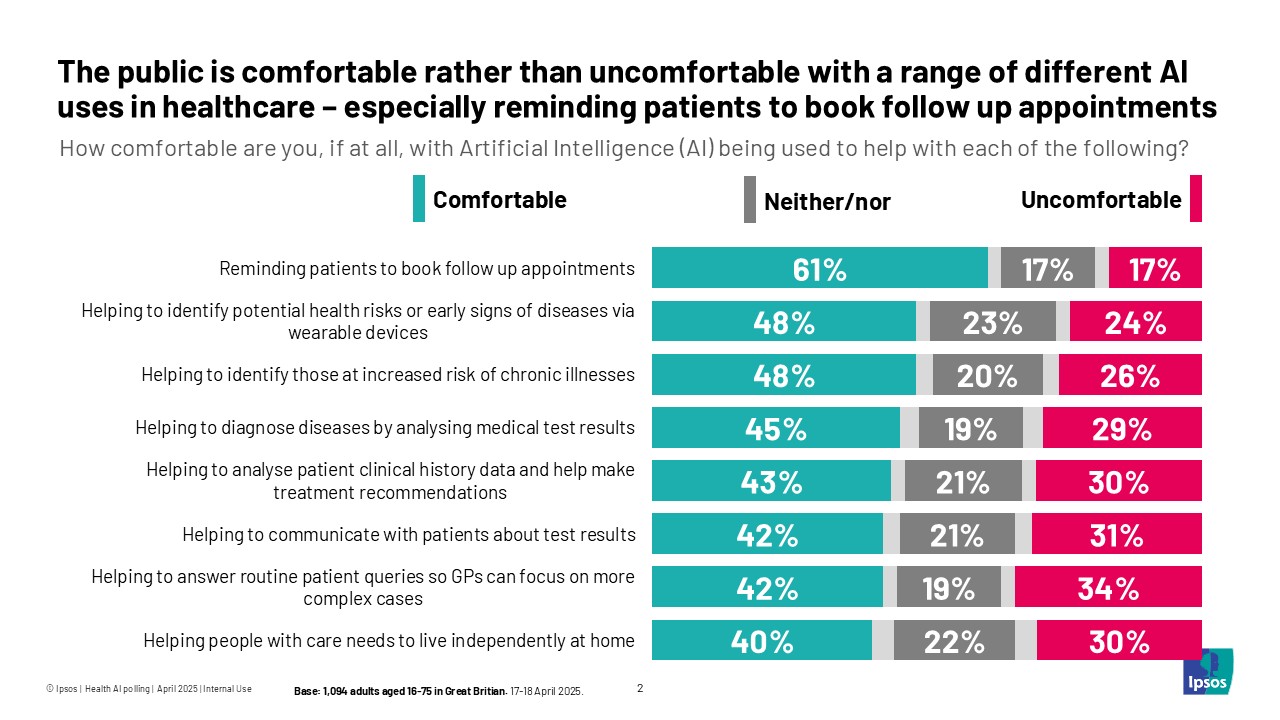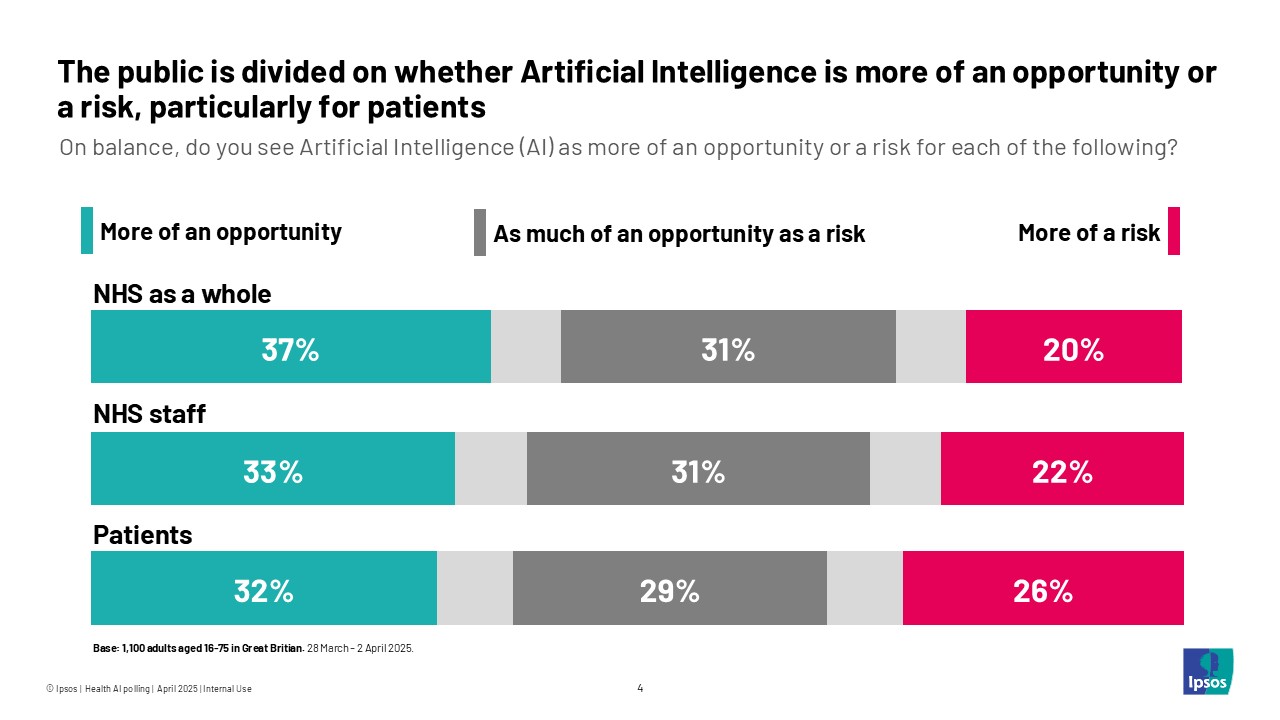Britons are open to the use of AI in the NHS, but are split on whether it presents more risk or reward
A new Ipsos UK public opinion poll reveals that the British public is largely comfortable with the use of artificial intelligence (AI) in healthcare, particularly for tasks such as reminding patients about follow-up appointments and identifying those at increased risk of chronic illnesses. Two polls were conducted, one between March 28th and April 2nd 2025 among 1,100 adults aged 16-75 in Great Britain, and one between April 17th and 18th 2025 among 1,094 adults aged 16-75 in Great Britain.
Key findings
- High comfort levels: Britons are comfortable rather than uncomfortable with AI being used for a range of healthcare applications. The highest levels of comfort are for reminding patients to book follow-up appointments (61%), helping to identify potential health risks or early signs of disease via wearable devices (48%) and helping to identify those at increased risk of chronic illnesses (48%). They are most uncomfortable with AI helping to answer routine patient queries so GPs can focus on more complex cases (34% are uncomfortable with this).

- Positive impact anticipated: The public generally anticipates a positive rather than negative impact from using AI in healthcare, particularly in ensuring timely disease diagnosis (49% say this would have a positive impact in the next few years), improving administrative processes (49%), and decreasing NHS staff workload (48%). They are least likely to think it will have a positive impact on the quality of care provided by patients (35%).
- Opportunity vs. risk: The public is somewhat divided on whether AI in healthcare represents more of an opportunity or a risk. 37% see it as an opportunity for the NHS as a whole, compared with 20% who see it as more of a risk and 31% who say it presents as much of an opportunity as a risk. Around a third see AI as an opportunity for NHS staff (33%) and patients (32%).

Commenting on the findings, Kate Duxbury, Research Director at Ipsos said:
These findings suggest a bedrock of acceptance of AI in healthcare among the British public. The higher comfort levels with AI-assisted tasks like appointment reminders and risk identification indicate a willingness to embrace technology that can improve efficiency and patient outcomes. The positive expectations regarding AI's impact on diagnosis times, administrative burdens, and staff workloads further underscore this. However, with just a third thinking AI will have a positive impact on the quality of care provided to patients, or seeing it as more of an opportunity than a risk for patients, this suggests the need for continued public engagement and education about the use of AI in healthcare. Reassuring the public about the benefits to patients and the continued involvement of humans alongside AI, will be crucial to building greater public trust in the responsible implementation of AI in the NHS and the range of applications it can safely have.
Technical note
- Ipsos conducted two surveys among representative samples of adults aged 16-75 across Great Britain:
- Polling was conducted online among 1,100 participants between 28th March and 2nd April 2025.
- Polling was conducted online among 1,094 participants between 17th and 18th April 2025.
- Data are weighted to match the profile of the population. All polls are subject to a wide range of potential sources of error.



